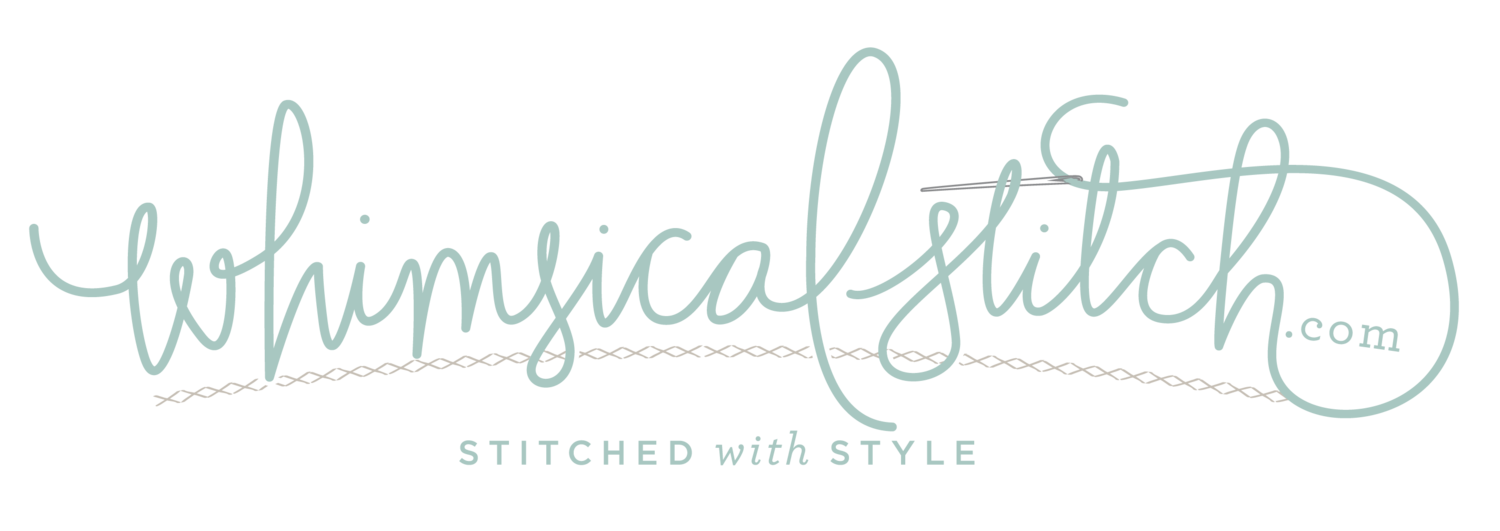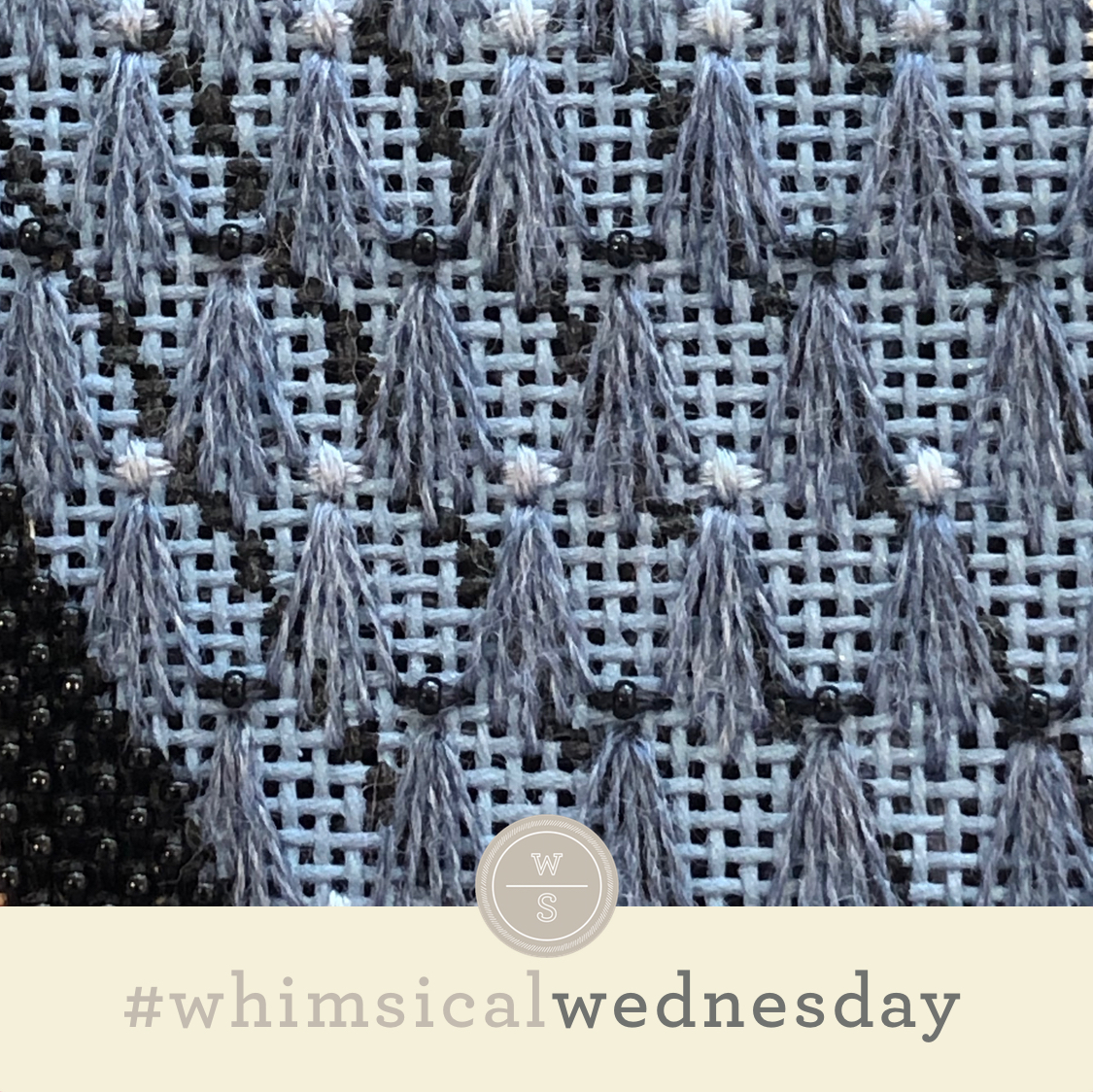This morning’s stitch comes from a frantic search on my phone for a stitched sample. Not the most reliable nor advisable way to find a stitch for a blog post but, wow, I think it turned out better than all right.
I am, literally, leaving on a jet plane in a few hours so this is going to be quick. The stitched sample uses a single strand of Burmilana (black lines), Petite Silk Lame (gray lines), and a Sundance bead on Herondipity (by Charlie Harper), a project I’m working on with a local student.
This large space stitch would be great on a tall tree with beautiful shading, such as a pine tree or a solid Christmas tree with a variegated Silk Floss (Silk ‘N Colors, Gloriana, or ThreadWorx) or a variegated wool (Lorikeet or ThreadWorx). Depending on how the tree was painted, you could add contrasting accents (say silver and red beads for ornaments) or matching accents to accentuate the leafiness. (If leafiness isn’t a real word, I say pshaw. It’s a great word.)
Clearly, this makes a wonderful stitch for bird wings. I would ratchet up the accents for the wings with brighter metallics or larger beads, such as Swarovski round crystals or bi-cones. This stitch is scalable and I will be using a slightly smaller version of this on the Partridge of the Twelvetide Series. It’s going to be adorable.
This stitch diagram, along with all other #whimsicalwednesday and #smallspacesunday stitch diagrams, can also be found on a Pinterest board here.
Be sure to follow whimsicalstitch.com on Facebook, Pinterest, Instagram, and Twitter.
If you like what you see on this blog, want to learn some very creative decorative stitches, and how to put them all together, whimsicalstitch.com sells Stitch Guides and Stitch Concepts for Melissa Shirley Designs, Zecca Designs, Sandra Gilmore, Purple Palm, Maggie, and Patience Brewster, and many more. Click here to see the newest guides and click here to see the entire collection.
I hope you have the perfect spot for this stitch! Please enjoy!
A Note about Diagrams
I use color in diagrams to make them as clear as possible. The primary function of different colored lines is to illustrate a stitch sequence. For example, layering of colors demonstrates you add them in that order. They can also provide ideas on how to integrate additional threads (one line for each color). Or, you can use the same thread for all color lines. That's where I encourage you to use your imagination for the space you are stitching!





